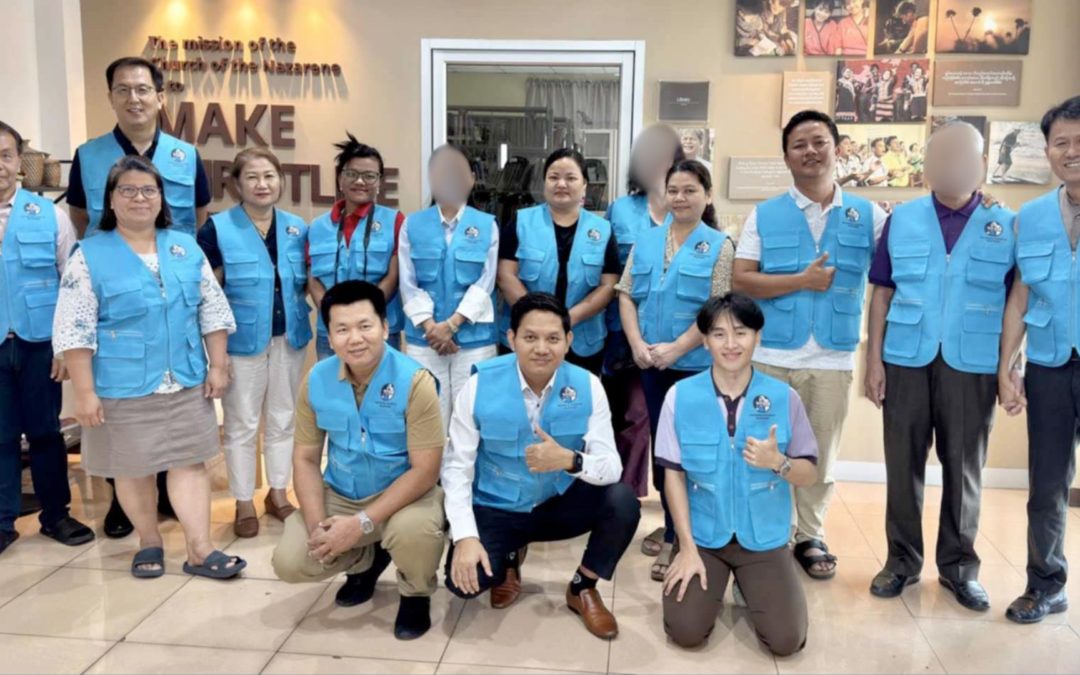 Stress 102 (part 2) stres/noun: the physiological response to a perceived threat or demand.
Stress 102 (part 2) stres/noun: the physiological response to a perceived threat or demand.
Last time, Stress 101, we explored Stress: What is it? and Why Does It Matter?
Read: Breathing Deep- Stress 101 (Part 1)
Now, let’s take a look at Stress: What Can We Do About It?
Once we become aware of what stress is and what happens in our body and mind when we are under stress, and we’ve considered what is at risk if we don’t address it, (or what benefit we can experience when we do) we are in a good place to be motivated toward action.
But what is that action? Harmon and I have developed a 5-Step Process that has helped us as well as others we’ve worked with, to take charge as it relates to Stress Management. (Thanks to Stephen Gualberto for putting these into 5 R’s!)
Step #1: REFLECT
Self-awareness is the first and most important part of stress management. We can raise our awareness by considering what stresses us and how stress affects us.
- First, what are the stressors in our lives? Reflect back over the last 30 days and consider the circumstances surrounding an increase in stress. In what situations are we most uncomfortable, or do we experience an increase in anxiety? When we can’t sleep, what has been happening during the day? In what ways are we undergoing transition or grief? What circumstances cause increased conflict in our life? List everything we can think of from a broken toilet to significant life transitions. A standard stress score has been suggested for many life events (remember, even good events cause stress) – How many of these have you experienced this year? Take this online stress test.
- Next, what is our own unique response to stress? Headington Institute has a self-awareness check list to help us explore the ways that chronic stress may be showing up in our lives.
Step #2: REMOVE
- Get rid of ‘Junk Stressors.’ I owe the concept of ‘Junk Stressors’ to the facilitators of the SYIS (Sharpening Your Interpersonal Skills) workshop (which I highly recommend!). Basically the idea is that we can eliminate the stressors in our life that don’t have to be there. Junk Stressors could be the inability to say “no” when we are asked to take on a task that is non-essential, habits like ignoring the alarm clock, or too much time wasted on social media, or poor diet choices. These can result in stress from having to rush or not having enough energy to meet our responsibilities. Developing more healthy thought processes can eliminate junk stress that comes from worry or over-thinking. What interactive or relationship habits might we have that could be causing Junk Stress? Are there some conversation topics we need to avoid? What Stress-producing circumstances are in our ability to avoid? What habits can we introduce into our daily routine that would remove these Junk Stressors. We can make a list and one by one, intentionally consider what it would take to remove these from our life.
Step #3: REDUCE
- Once we have removed the ‘Junk Stressors’, we can next focus our attention toward reducing, as much as possible, the remaining stressors. This step speaks to the power of having good boundaries in place. Creating margins between high-demand events, anticipating when we will need extra rest, giving ourselves space when we are experiencing high stress life events, allowing adequate time to meet our responsibilities – these are ways to reduce stress in our life. How realistic is my calendar? Who can I call on when I am over-extended? When I can’t say ‘no,’ how can I learn to say, ‘later.’ How does my schedule allow for the unpredictable stuff of life? How might better delegation practices reduce my stress levels? What steps can I take today that will result in a reduction of stress?
Step #4: REFRAME
- As Christ-followers, knowing there is a loving and sovereign God with whom we are in relationship, gives us access to a new perspective that can have a dramatic impact on our experience of stress. Reframing is all about perspective. Taking an intentional positive perspective actually reduces the presence of the stress chemicals in our body. Regular practice of Gratitude has been shown to be one of the most effective stress reducers available to us. Taking time to consider the hope we have from an eternal perspective will significantly increase our current experience of peace. How can we view our current ‘problem’ as an opportunity? What am I thankful for today? Who do I appreciate and have I told them? How do these circumstances look from the perspective of eternity? What potential good can come from this situation? How can I grow from this?
Step #5: RELAX
- For some of us, we’ve been overstressed for so long that our body has forgotten how to trigger that Relaxation Response we talked about in Stress 101. Fortunately, we can give our body a ‘push start’ toward triggering that response – our body will thank us for the reminder of how it was designed to work.
- Practice Deep Breathing – breathe deeply and slowly, for 20 minutes, twice a day.
- Progressive muscle relaxation – This is a practice of intentional tensing and relaxing of the muscle groups in your body and is shown to significantly and immediately reduce the presence of stress chemicals in our body.
- Go for a walk – even a 15 minute walk in a safe, quiet setting will help to trigger the relaxation response.
- Regular exercise.
- Healthy diet – caffeine, low fiber carbs and refined sugar increase the stress hormone cortisol; bananas, citrus, and dark chocolate reduce cortisol. Here’s more.
- Get adequate sleep. Sleep is one of the first things to go when stress increases. On the other hand, sleep will help reduce stress hormones.
- Laugh. Why? Because Laughter actually diminishes the secretion of cortisol!
- Listen to upbeat, relaxing music.
- Pray and Meditate.
- Practice Sabbath.
You may have noticed that I’ve linked to several previous articles of Breathing Deep. Our awareness of stress and how to manage it is a huge issue impacting our holistic health, the effectiveness of our lives in ministry and the quality of our most valued relationships. I’m passionate about being a part of helping reduce the negative impact of stress in peoples’ lives. If you’d like further help in exploring the role of stress in your life, or developing your own personal Stress Management plan, let me know.
-Submitted by: Cindy Schmelzenbach






